Rhodamine 6G
Synonym(s):Basic Red 1;Rhodamine 6 G
- CAS NO.:989-38-8
- Empirical Formula: C28H31ClN2O3
- Molecular Weight: 479.02
- MDL number: MFCD00012665
- EINECS: 213-584-9
- SAFETY DATA SHEET (SDS)
- Update Date: 2025-12-17 11:34:44

What is Rhodamine 6G?
Description
Rhodamine 6G is one the most effective laser dyes in recovering latent prints on various non-porous surfaces. This dye is normally used on non-porous surfaces, but may, under certain conditions, be used on porous or semi-porous surfaces. Rhodamine 6G is extremely efficient as it is highly fluorescent and can be used with various alternate light sources.
Rhodamine 6G has been used as a leukocyte marker to study the interaction between leukocytes and the vascular endothelium. It has also been used to label platelets.
Description
Rhodamine 6G is a fluorescent molecule—it gives off a specific wavelength of light when excited by light of a different wavelength. 6G was once used in dye lasers, but it is now used to detect biological compounds at the single molecule level.
Chemical properties
dark reddish purple, brown or black crystalline solid
The Uses of Rhodamine 6G
Rhodamine 6G has been used as a leukocyte marker to study the interaction between leukocytes and the vascular endothelium. It has also been used to label platelets.
The Uses of Rhodamine 6G
Rhodamine 6G (R6G) is an organic laser dye and can be used to study the probes as it has a high quantum yield for fluorescence. It can be used as a fluorescence tracker which helps in defining the spectroscopic characteristics for achieving a high conversion efficiency and precision of measurements. The absorption of R6G in different solvents can range between 400-700 nm.
The Uses of Rhodamine 6G
Rhodamine dyes are used extensively in biotechnology applications such as?fluorescence microscopy,?flow cytometry,fluorescence correlation spectroscopy?and?ELISA.
What are the applications of Application
Rhodamine 6G is a rhodamine analog potentially useful in Pgp efflux assays
Preparation
3-(Ethylamino)-4-methylphenol and Phthalic anhydride to afford the product was obtained ethanol and an inorganic acid esterification; O-Methylaniline with ethylene oxide Alkylation , sulfonated, alkali fusion, and Phthalic anhydride condensation, and then use ethylene oxide esterification.
Definition
Rhodamine 6G is a rhodamine 6G(1+), an organic chloride salt and a xanthene dye. It has a role as a fluorochrome.
What are the applications of Application
R6G can be used as a cationic dye to determine the photocatalytic ability of TiO2 reinforced graphene oxide composites that can be potentially used in self-cleaning applications. It can be used to calculate the quantum yield of glutathione-capped copper nanoclusters (CuNCs) for fluorescent thermo-responsive nanomaterials and gold nanoparticles (AuNPs) for fluorescent/X-ray computed tomography.
General Description
Bright bluish-pink crystals or reddish purple powder.
Air & Water Reactions
Insoluble in water.
Health Hazard
ACUTE/CHRONIC HAZARDS: When heated to decomposition Basic Red 1 emits very toxic fumes.
Fire Hazard
Flash point data for Basic Red 1 are not available. Basic Red 1 is probably combustible.
Flammability and Explosibility
Not classified
Biological Activity
Rhodamine 6G is a rhodamine analog useful in P-glycoprotein (Pgp) efflux assays. It has been used to characterize kinetics of multidrug resistance protein 1 (MRP1)-mediated efflux.
A rhodamine analog useful in Pgp efflux assays. Has been used to characterize kinetics of MRP1- mediated efflux.
Biochem/physiol Actions
Rhodamine 6G is a rhodamine analog useful in P-glycoprotein (Pgp) efflux assays. It has been used to characterize kinetics of multidrug resistance protein 1 (MRP1)-mediated efflux.
Safety Profile
Poison by ingestion and intraperitoneal routes. An experimental teratogen. Mutation data reported. Questionable carcinogen with experimental tumorigenic data. When heated to decomposition it emits very toxic fumes of Cland NOx.
Purification Methods
Crystallise the dye from MeOH or EtOH, and dry it in a vacuum oven. [Beilstein 18 III/IV 8244, 18/12 V 283.]
Properties and Applications
bright blue light pink. Purple powder or flash of green light crystallization. Soluble in water for big red, with strong green fluorescent, soluble in ethanol for red, with the yellow fluorescence. In the thick of the acid is yellow, diluted in red. Dye with sodium hydroxide solution with a red precipitate. Mainly used in the manufacture of color break, used in ink. Can also be used for cotton, wool and silk dyeing.
| Standard( Silk ) | Light Fastness | Persperation Fastness | Ironing Fastness | Soaping | |||
| Fading | Stain | Fading | Stain | Fading | Stain | ||
| ISO | 2 | 4-5 | 1 | 3 | 3-4 | ||
Properties of Rhodamine 6G
| Melting point: | 215 °C |
| Density | 1.26 |
| vapor pressure | 0Pa at 25℃ |
| storage temp. | room temp |
| solubility | H2O: soluble1mg/mL, dark red |
| form | Powder |
| Colour Index | 45160 |
| color | Red-brown to brown |
| Odor | Odorless |
| PH Range | 6 |
| Water Solubility | SOLUBLE |
| λmax | 528 nm |
| BRN | 3900071 |
| Stability: | Stable. Incompatible with strong oxidizing agents. |
| Biological Applications | Detecting nucleic acids,prostate cancer,stress biomarkers,protease activity,urogenital infection; measuring membrane potential; photodynamic therapy; apoptosis assays; stents |
| Major Application | Clays; colored bubbles; color filters; detergents; drawing materials; dye lasers;electroluminescent (EL) displays; glass materials; inks; laser devices/laser materials; light-emitting diode devices/materials; liquid crystals;liquid crystal displays; luminescent materials; metal oxide particles; petroleum products;photographic materials;photoresists; photovoltaic devices; polymer films; printing materials;recording materials; silica gel;solar cells;sol–gel materials; sputtered gold films;textiles; thin films;toners; tracers for hydrology;waveguides |
| CAS DataBase Reference | 989-38-8(CAS DataBase Reference) |
| IARC | 3 (Vol. 16, Sup 7) 1987 |
| EPA Substance Registry System | C.I. Basic Red 1 (989-38-8) |
Safety information for Rhodamine 6G
| Signal word | Danger |
| Pictogram(s) |
 Corrosion Corrosives GHS05  Skull and Crossbones Acute Toxicity GHS06  Environment GHS09 |
| GHS Hazard Statements |
H301:Acute toxicity,oral H317:Sensitisation, Skin H318:Serious eye damage/eye irritation H410:Hazardous to the aquatic environment, long-term hazard |
| Precautionary Statement Codes |
P261:Avoid breathing dust/fume/gas/mist/vapours/spray. P273:Avoid release to the environment. P280:Wear protective gloves/protective clothing/eye protection/face protection. P301+P310:IF SWALLOWED: Immediately call a POISON CENTER or doctor/physician. P302+P352:IF ON SKIN: wash with plenty of soap and water. P305+P351+P338:IF IN EYES: Rinse cautiously with water for several minutes. Remove contact lenses, if present and easy to do. Continuerinsing. |
Computed Descriptors for Rhodamine 6G
| InChIKey | VYXSBFYARXAAKO-BXMGYBSLSA-N |
Rhodamine 6G manufacturer
New Products
4,4-Difluoropiperidine hydrochloride tert-butyl 9-methoxy-3-azaspiro[5.5]undecane-3-carboxylate Indole Methyl Resin N-Isopropylurea N,N-Dicyclohexylcarbodiimide(DCC) MELDRUMS ACID 5-METHYLISOXAZOLE-4-CARBOXYLIC ACID Magnessium Bis glycinate Zinc ascorbate 1-bromo-2-butyne 2-acetamidophenol 9(10H)-anthracenone Erythrosin B, 4-Piperidinopiperidine 2-((4-morpholinophenylamino) (methylthio) methylene) malononitrile 2,4-dihydroxybenzaldehyde 3-(4-morpholinophenylamino)-5-amino-1H-pyrazole-4-carbonitrile Methyl 2-methylquinoline-6-carboxylate 2,6-dichloro-4-nitropyridine 4-Bromo-2-chlorobenzonitrile 2-(benzylamino)acetic acid hydrochloride 4-(tert-Butoxycarbonylamino)but- 2-ynoic acid 3,4-dihydro-2H-benzo[b][1,4]dioxepine 1-Phenyl-1-cycloprppanecarboxylicacidRelated products of tetrahydrofuran
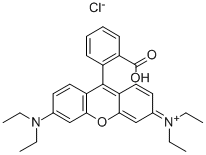
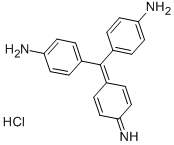


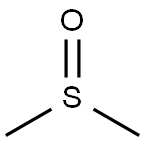
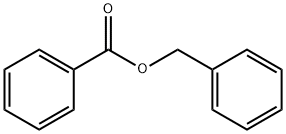

You may like
-
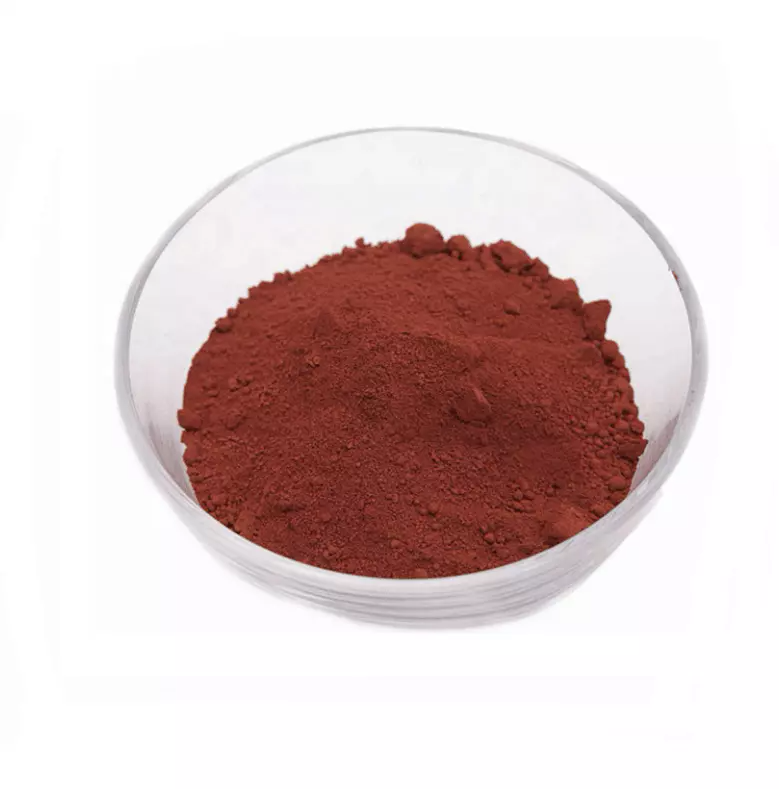 Rhodamine-6G 99%View Details
Rhodamine-6G 99%View Details -
 Basic Red 1 98.00% CAS 989-38-8View Details
Basic Red 1 98.00% CAS 989-38-8View Details
989-38-8 -
 Rhodamine 6G 97% CAS 989-38-8View Details
Rhodamine 6G 97% CAS 989-38-8View Details
989-38-8 -
 Rhodamine 6G CAS 989-38-8View Details
Rhodamine 6G CAS 989-38-8View Details
989-38-8 -
 Rhodamine 6G CAS 989-38-8View Details
Rhodamine 6G CAS 989-38-8View Details
989-38-8 -
 Rhodamine 6G, dye content CAS 989-38-8View Details
Rhodamine 6G, dye content CAS 989-38-8View Details
989-38-8 -
 RHODAMINE 6G CAS 989-38-8View Details
RHODAMINE 6G CAS 989-38-8View Details
989-38-8 -
 Basic Red 1View Details
Basic Red 1View Details
989-38-8
